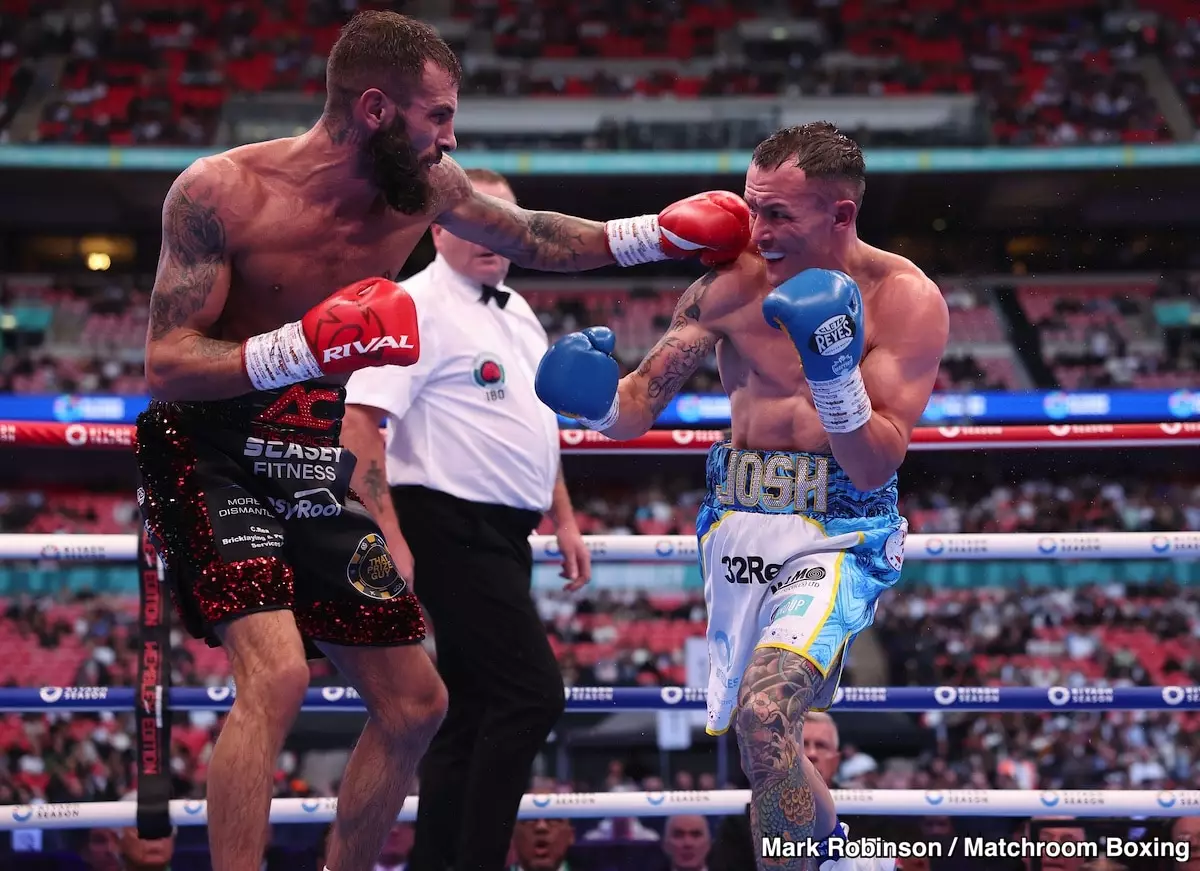With a career firmly rooted in the super featherweight division, Anthony Cacace is contemplating a significant shift to the lightweight class. Having recently defended his IBO super featherweight title against Josh Warrington in an impressive performance, the 35-year-old Brit is facing a pivotal crossroads. As he sets his sights on renowned champions like Vasily Lomachenko and Gervonta ‘Tank’ Davis, Cacace is weighing the financial and professional advantages of moving up against the challenges that lie ahead.
Cacace’s compelling performance against Warrington—a former two-time featherweight champion—secured his position in the boxing realm, but the next steps are crucial. At his age, the temptation of a higher paycheck from fighting elite boxers at 135 pounds is hard to resist. The prospect of facing champions like Lomachenko or Davis far outweighs the financial stakes of continuing to defend his title against tough opponents such as Eudardo ‘Sugar’ Nunez, who poses his own risks as a knockout artist with a 100% KO rate.
The lure of increased earnings is a significant factor motivating Cacace’s potential climb to lightweight. Today’s boxing landscape is as much about financial viability as it is about glory; lofty purses can be an essential component, especially for a fighter nearing the twilight of his career. With such a backdrop, a match against the likes of Tank Davis or Lomachenko appears lucrative. Cacace understands that staying at 130 pounds offers limited financial growth, particularly when matched against formidable but less marketable opponents.
Comparing potential fights at both weight classes, Cacace recognizes the stark contrast in financial prospects. A fight with ‘Sugar’ Nunez might serve its purpose in defending titles but wouldn’t provide nearly the same paycheck as a clash with a high-profile athlete like Lomachenko. Given this, the inevitability of Cacace’s move seems apparent, especially considering he is approaching 36 years—a point in a boxer’s career where time waits for no one.
A Mixed Performance Against Warrington
Cacace’s win against Warrington was a clear testament to his skill and determination, with judges scoring the bout 117-111, 118-110, and 117-111. Yet, even in a decisive win, there were elements of his performance that could, and perhaps should, have been stronger. Despite his physical advantages, Cacace’s inability to consistently maintain distance allowed Warrington to remain competitive throughout the match, a reality that may prove challenging against the skill sets presented by lightweight contenders.
The fight showcased Cacace’s potential but also highlighted areas for growth. He was not able to leverage his reach and punch effectively, leading to a strategic battle that unfolded in close quarters. Warrington, known for his crafty tendencies in the ring, managed to nullify Cacace’s power with effective head movement and clinching tactics. By the championship rounds, Cacace finally adjusted his approach, but it was too late for a knockout, a crucial element he must refine should he face the league of exceptional fighters in the lightweight division.
As Cacace considers his next steps, he must keenly assess the lightweight division’s challenges. The power and agility of boxers like Lomachenko and Davis demand a more sophisticated game plan. Cacace will have to pivot away from merely relying on his physical attributes and transform into a more adaptable fighter. The landscape of 135 pounds is littered with fighters capable of capitalizing on even the smallest opening, and Cacace must take these factors into account if he wishes to realize his ambitions.
In recounting his experience against Warrington, Cacace noted that while he got the victory, it did not reflect his full capabilities. He acknowledged his corner’s frustration and recognized the need to produce a more decisive performance in the future. As he embarks on this potential shift to lightweight, he must strike a careful balance between aggression and strategy to capitalize on his advantages while mitigating the risks associated with fighting at this higher caliber.
Anthony Cacace’s recent triumph sets the stage for what could be a defining chapter in his boxing career. The allure of challenging established luminaries in the lightweight division is enticing, but the realization of this goal necessitates an evolution in style and strategic approach. As he embarks on this journey, Cacace faces not just the challenge of new opponents but also one of self-improvement, a critical endeavor if he harbors ambitions of capturing championship gold in a more competitive weight class. The boxing world will undoubtedly keep a close eye on Cacace as he navigates this pivotal moment in his career.

